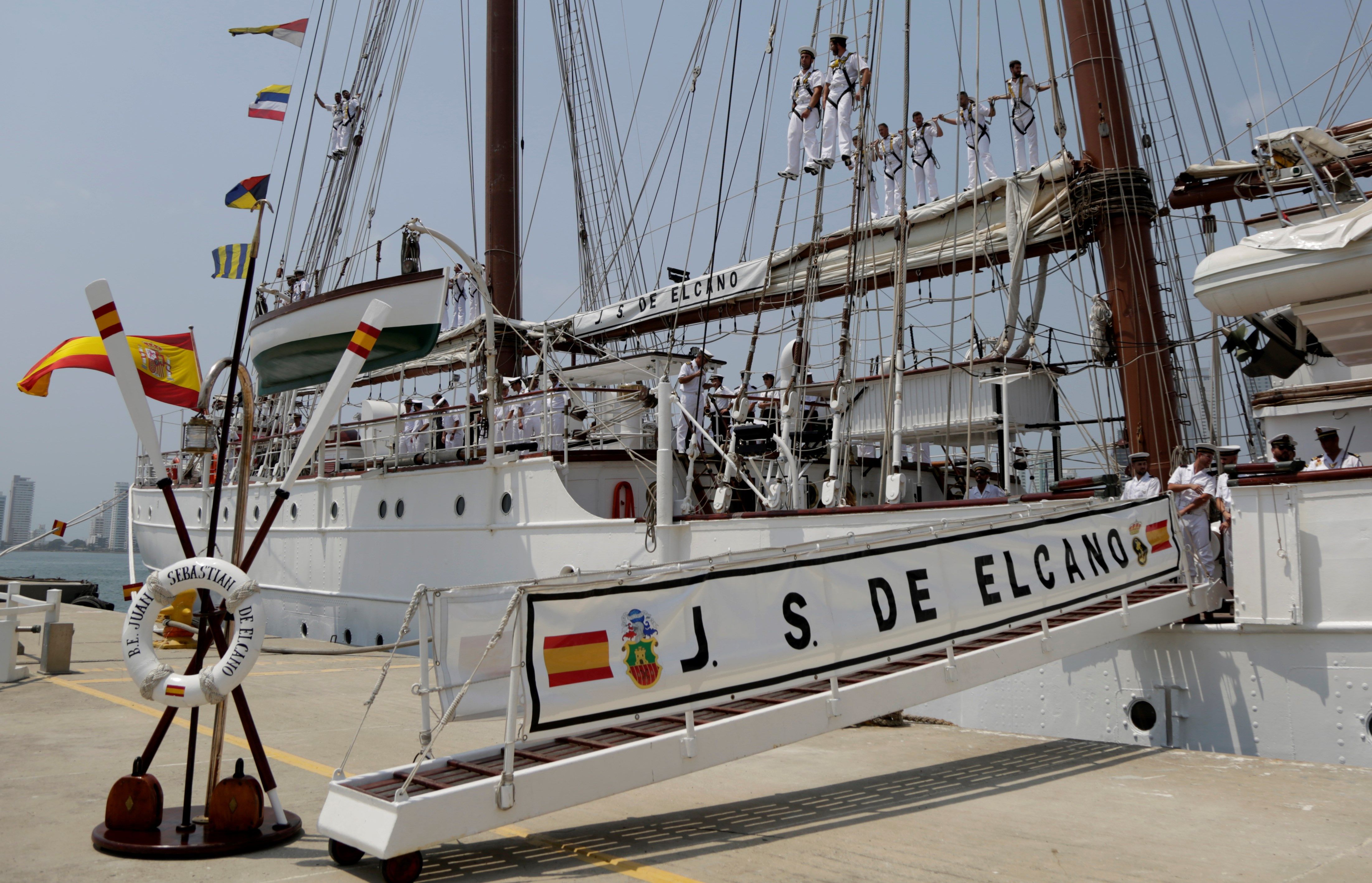The Spanish Navy's sail training vessel Juan Sebastián Elcano tied up yesterday at the port of Cartagena de Indias in Colombia. But a past case of drug trafficking on the ship, involving a large cocaine shipment that was loaded aboard in that very Colombian port, is still far from tied up.
It has been demonstrated that the four-masted barquentine Juan Sebatián Elcano, pride of the Spanish Navy, and on which several members of Spain's royal family have served, worked as a cocaine cargo ship for at least one trip, a voyage from Cartagena de Indias to the Spanish port of Cádiz - with a stopover in New York - in 2014.
When the Juan Sebastián Elcano arrived in the Spanish port, 127 kilograms of cocaine was found in a compartment in the ship's hold. But in June 2018 the investigation into who was responsible was suspended, mainly due to the complete lack of control of access to the vessel's hold and the absence of records on sailors who went ashore at each port of call, making it impossible to pinpoint those among the 185 crew members who were responsible for the drug smuggling.

However, at the beginning of February this year, a Spanish military court ordered the reopening of the case and summonsed the cook and a steward of the training ship to appear before the court. The resolution of the case could put a spotlight on the hazy lack of control over the goods that were brought on board the ship.
It is in this context that the Elcano has now returned to Cartagena de Indias as a port of call in its XCI training voyage, with its mission of educating aspiring officers - both in marine and technical aspects, as well as socio-cultural and ethical issues.
Homage to the controversial Blas de Lezo
The ship will be in the Colombian port until March 6th and its officers were due to participate this Saturday in the homage to Admiral Blas de Lezo, a controversial figure whose historical rehabilitation is a reclamation of the Spanish nationalist right. Among the military exploits of the admiral was his participation in the bombardment of the city of Barcelona in 1714.

